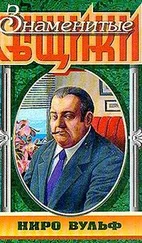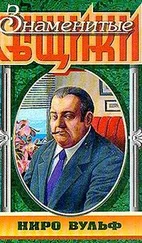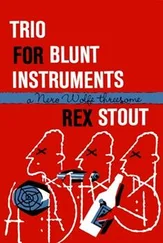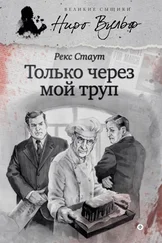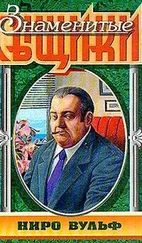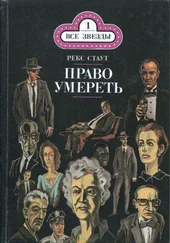“You won’t see me singly.” Ackerman, the Washington lawyer. He sounded like John Mitchell, too — at least the way Mitchell sounded on television. “You won’t see me at all. I’m surprised that you don’t seem to realize what you’re trying to do. You’re trying to get us to go along with you on a cover-up, and not a cover-up of a break-in to look at some papers, a cover-up of a murder. You say two murders. Of course I don’t want to be involved in a murder investigation, nobody does, but at least I’m not guilty. But the way you’re playing it, if I go along with you, I would be guilty. A cover-up of a murder. Obstruction of justice. Urquhart asked you if this is being recorded. I hope it is. When I talk to the District Attorney I would enjoy being able to tell him that this is on tape and he can—”
“No,” Hahn, the banker, said. You wouldn’t think such a low, soft voice could cut in, but it did. “You’re not going to talk to the District Attorney or anyone else. I’m not a lawyer, but I don’t think we’ll be charged with obstruction of justice merely because a private detective told us that a man said something about a slip of paper, and I do not want to be involved in a murder investigation. I don’t think any of us—”
Two or three voices, not soft and low, stopped him. I could try to sort it out and report it, but I won’t because it wouldn’t decide anything. Wolfe just sat and took it in. I got his eye and asked a question by pointing to my notebook and then the typewriter, but he shook his head.
But it did decide something. When it became obvious that they were all stringing along with Hahn, and Ackerman was a minority of one, Wolfe stopped the yapping by raising his voice.
“Please! Perhaps I can help. Mr. Ackerman is a member of the bar, and I am not, but his position is not tenable. Probably Watergate has made him excessively sensitive about cover-ups. Four lawyers have been disbarred, and more will be. But you can’t be charged with obstruction of justice when all you have is hearsay. Perhaps I can be charged, but my taking that risk is of no concern to you. If Mr. Ackerman talks to the District Attorney, I’ll be in a pickle, but he’ll probably regret it, guilty or not.”
He looked at the wall clock. “It’s past ten o’clock. As I said, I must see each of you singly. Mr. Ackerman, you may want to get back to Washington. Why not stay now and let the others go?”
“No,” Hahn said. “I repeat my offer. One hundred thousand dollars.”
That started them off again, all of them but Ackerman and Vilar, and again I won’t try to sort it out. But three of them got to their feet, and soon Urquhart left the red leather chair and made it four, and I got up and crossed to the door to the hall. Again there was a clear majority, and when Vilar and Igoe joined me at the door Wolfe spoke up.
“You will hear from me. All of you. From Mr. Goodwin. He will telephone and make appointments to suit your convenience — and mine. The best hours for me are eleven in the morning, six in the afternoon, and nine in the evening, but for this I would trim. I don’t want to protract it, and neither do you. There will—”
I missed the rest because Igoe had headed for the front and I went to help with his coat and hat.
When all five of them were out and the door shut, and I returned to the office, Ackerman was in the red leather chair, leaning back with his legs crossed. He was big and broad, and the yellow chairs were much smaller. As I crossed to my desk he was saying, “... but you don’t know anything about me except that I look like John N. Mitchell.”
He not only admitted it, he even put the N in. I liked that.
“I have been told,” Wolfe said, “that you are a reputable and respected member of the bar.”
“Certainly. I haven’t been indicted or disbarred. I have had an office in Washington for twenty-four years. I’m not a criminal lawyer, so I haven’t been invited to act for Dean or Haldeman or Ehrlichman or Colson or Magruder or Hunt or Segretti. Or even Nixon. Do you actually expect to put me through that catechism you dictated?”
“Probably not. Why were you included in that gathering?”
“It’s complicated. Albert Judd was and is chief counsel for NATELEC. Five years ago he was acting on a tax matter for them and needed a Washington man and got me. That’s how I met Harvey Bassett. Bassett thought he needed a good lobbyist, and I got Ernest Urquhart, one of the best. I have known him for years. He disappointed me here tonight. He is usually a wonderful talker, I know that, but I guess this wasn’t his pitch. I had never met the other three — Hahn, the banker, or Vilar, the security man, or Igoe. I knew Igoe is a vice-president of the corporation.”
“Then you know nothing about Hahn’s comment about Mrs. Bassett. And Igoe.”
I raised a brow. What did that have to do with Watergate and tapes?
“No. Yes, nothing. I—” He flipped a hand. “Except hearsay.”
“Whom did you hear say what?”
I have tried to talk him out of that “whom.” Only highbrows and grandstanders and schoolteachers say “whom,” and he knows it. It’s the mule in him.
Ackerman’s chin was up. “I’m submitting to this, Wolfe, only because of them. Especially Urquhart and Judd. Judd called me last night — Igoe had talked to him — and I took a plane to New York this morning and we had lunch. He told me things about Bassett that I hadn’t known, and one of them was his — he didn’t say ‘obsession,’ he said ‘fix’ about his wife. I don’t peddle hearsay; you can ask Judd.”
“I shall. Did you know how Bassett felt about Nixon and tapes?”
“Yes. A few months ago he and Judd were in Washington about some patents — I know something about patents — and we spent a whole evening on Nixon and tapes. Bassett had the wild idea that Nixon could be sued for damages — ten million dollars — for slandering and defaming manufacturers of electronic recorders by using them for criminal and corrupt purposes. We couldn’t talk him out of it. He was a nut. I don’t know if he was balmy about his wife, but he was about that. Of course that was a part of how he made it big in business — his drive. He had that .”
“What was said — decided — about it at that meeting?”
“Nothing was decided. Bassett wanted Vilar to say that it was difficult to persuade corporation executives to contract for security appliances and personnel because they thought Nixon had given electronic equipment a bad name. He wanted Urquhart to say that if you tried to lobby for anybody connected in any way with electronics, no one on the Hill would listen to you. He wanted Igoe to say that men working in electronics — all levels, top to bottom — were quitting and you couldn’t get replacements. He wanted Judd and me to say that all of that was actionable and we would act. God only knows what he wanted Hahn to do — maybe lend him a couple of million without interest to back the crusade.”
Wolfe was eyeing him. “And you grown men, presumably sentient, soberly discussed that drivel? Or were you tipsy?”
“No. Judd and I hadn’t even had martinis, because we knew Bassett would buy Montrachet and Château Latour. He always did. But you didn’t know Harvey Bassett. He could sell ice cubes to an Eskimo. Also, of course, he was a source of our income — for at least two of them a major source — and you don’t spit in the eye of the source of your income. You take a bite of roast pheasant and a sip of Latour and pretend to listen hard. Most men do. I do. From what I’ve heard of you, maybe you don’t.”
“It’s a matter of style. I have mine. I have due regard for my sources of income. Is one—”
Читать дальше

